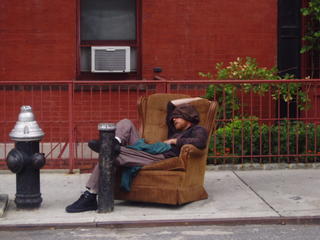Of Note: Pig Fever and Killing With Censorship
 The recent outbreak of what was first simply called "swine fever" has been loosely traced to a bacteria found in pigs. The Chinese government says the bacteria, streptococcus suis, has killed 32 people and infected about 140 others, but there are some questions about whether that's true (which I'll get to in a minute). The Chinese government has finally started warning farmers about the disease -- saying they shouldn't eat sick pigs -- but they've been very slow to admit they have a problem on their hands. And they still swear pig fever is no big deal: China's Health Minister, Gao Qiang, insists that the outbreak is "under control," despite an increasing death toll and number of cases (the World Health Organization disagrees with him -- as spokesperson Bob Dietz says, "This is a disconcertingly high mortality rate”).
The recent outbreak of what was first simply called "swine fever" has been loosely traced to a bacteria found in pigs. The Chinese government says the bacteria, streptococcus suis, has killed 32 people and infected about 140 others, but there are some questions about whether that's true (which I'll get to in a minute). The Chinese government has finally started warning farmers about the disease -- saying they shouldn't eat sick pigs -- but they've been very slow to admit they have a problem on their hands. And they still swear pig fever is no big deal: China's Health Minister, Gao Qiang, insists that the outbreak is "under control," despite an increasing death toll and number of cases (the World Health Organization disagrees with him -- as spokesperson Bob Dietz says, "This is a disconcertingly high mortality rate”).This kind of denial is a nasty habit with China -- their denial of SARS led to increased death rates and global panic. The Chinese government fears bad press, damage to the tourism industry, and the impact those things might have on their control over citizens, so they drag their feet and deny problems. Meanwhile, the disease gets worse: This swine fever has now spread to 100 villages, maybe more. No one knows for sure. Because the truth is, since the government controls the press in China, no one actually knows what's going on. And to me, that's the scariest part of this:
"State media says the pig disease is under control, but the authorities have banned independent reporting on the outbreak. The BBC's Nick Mackie in neighbouring Chongqing says foreign journalists found speaking to people are detained, and their notes and recordings erased; no official interviews are granted."
That's scary stuff. Reports about a government repeatedly letting its people die simply because said-government fears bad press ... that's something that could make a person question their rulers. And the Chinese government can't have that. So instead of allowing dissemination of information in order to save their citizens, they "detain" journalists and destroy their notes. They censor websites and filter out any news they don't want to their people to read (they'll surely be censoring this site any minute now). The effect this kind of censorship could have on the world is no joke: As everyone knows, the much-feared next flu pandemic will probably start exactly this way. People in China or a similar country will get the disease from chickens or pigs, the disease won't be properly contained in time, and it will spread to kill thousands, maybe millions worldwide.
Some reports are already calling this a swine flu, though as far as anyone knows, this is being caused by strep suis, not a flu virus. But the Chinese government hasn't allowed any independent laboratories to verify that diagnosis by looking at the samples, and the WHO and many experts doubt that a problem of this scale could be caused by strep suis, which has never killed so many or spread so fast, and which doesn't usually cause a key symptom seen in this outbreak: Bleeding under the skin. Unfortunately, the Chinese government has a bad track record in this department too: They originally claimed SARS was caused by a harmless infection too. So all of this means either strep suis has suddenly become more aggressive than ever, or the problem is being caused by something else.
"WHO spokesman Bob Dietz said it was too soon to say the bacteria was the cause or the only cause of the outbreak, adding that more laboratory tests were needed to see if other factors may be at work.'We can't discount the possibility there could be other bacteria, virus or something else active in here,' Dietz said."
Whatever turns out to be causing this, I'd be nice if countries that shun freedom of the press saw this as a test run and realized that their censoring ways could actually help cause a pandemic. But they're clearly not going to do that. I just hope that, as technology continues to move forward and information spreads online, restricting information will become a losing battle for everyone.
Labels: Botched Science, Science and the Media, Science Writing, Science: General











